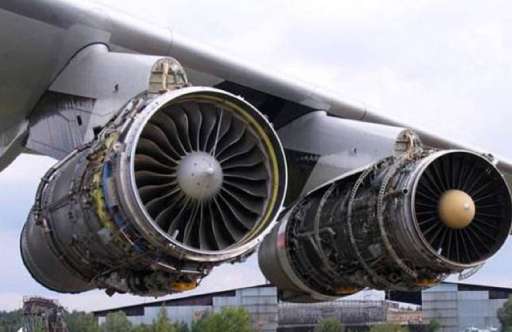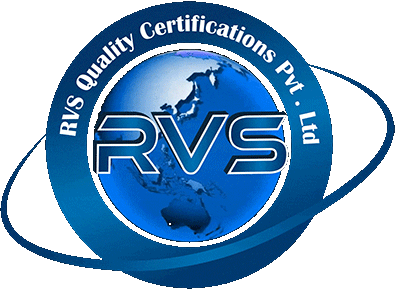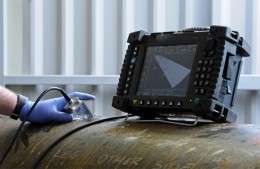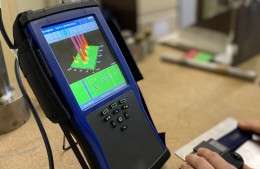I have been out of industrial activity after completing my graduation for about 2 years, then RVS Quality Certifications Pvt Ltd has changed my outlook on my career. Adopting a course in NDT has helped me launch my career.
The Benefits of Titanium Alloys for Aerospace Applications
- By: Admin

In the ever-evolving world of aerospace engineering, innovation and precision are paramount. Titanium has emerged as a game-changer in this realm, revolutionizing the way aircraft and spacecraft are designed and constructed. RVS Quality Certifications Pvt Ltd, a leading provider of Titanium Alloys, is at the forefront of advocating the benefits of titanium. In this article, we delve into the remarkable advantages that titanium brings to aerospace applications.
Lightweight Marvels:
One of the most outstanding attributes of titanium is its exceptional strength-to-weight ratio. Aerospace engineering demands materials that are not only robust but also lightweight to ensure fuel efficiency and optimal performance. Titanium fits this requirement with precision, offering structural integrity without burdening the aircraft or spacecraft with excessive weight. The service provider, equipped with casting manufacturing expertise, understands the significance of this feature and its contribution to crafting aerodynamic and efficient aerospace vehicles.
Impenetrable Corrosion Resistance:
Aerospace applications are subjected to some of the most challenging environments, including high altitudes, extreme temperatures, and exposure to harsh chemicals. Titanium possesses inherent corrosion resistance that sets it apart from traditional materials. This resistance to corrosion ensures the longevity and reliability of aerospace components, reducing maintenance and replacement costs over time. With The service provider, manufacturers can harness the full potential of titanium's corrosion-resistant properties, ensuring the enhanced durability of their products.
Elevated Temperature Performance:
The aerospace domain often requires materials that can withstand elevated temperatures without compromising structural integrity. Titanium shines in this aspect, boasting impressive heat resistance capabilities. Whether it's the intense heat generated during supersonic flight or the demanding conditions of re-entry into the Earth's atmosphere, titanium remains steadfast. RVS Quality Certifications Pvt Ltd, as one of the top Casting Manufacturers, assists in optimizing the manufacturing processes that unlock the full potential of these alloys, ensuring their high-temperature performance is harnessed effectively.
Aerospace Safety Reinforced:
Safety is paramount in aerospace engineering, and the reliability of materials is directly linked to the safety of flights and missions. Titanium, renowned for its fatigue strength and crack propagation resistance, elevates aerospace safety standards. They can withstand the cyclic stresses and strains experienced during flight without compromising their structural integrity.
Compatibility with Advanced Technologies:
As aerospace technologies advance, the materials used must keep pace. Titanium aligns seamlessly with modern aerospace technologies, including additive manufacturing and composite structures. These alloys can be effectively integrated into intricate designs and complex geometries, opening up new horizons for aircraft and spacecraft innovation. The service provider's casting manufacturing expertise, combined with their consultancy, assists manufacturers in harnessing these cutting-edge technologies to their advantage. RVS Quality Certifications Pvt Ltd's Aerospace Consultancy plays a pivotal role in guiding manufacturers on the selection and utilization of titanium, thereby reinforcing safety in aerospace applications.
Environmental Friendliness:
In an era where sustainability is a global imperative, titanium stands out as an environmentally friendly material. Their long lifespan, coupled with their recyclability, aligns with the principles of sustainable manufacturing. By choosing titanium, aerospace manufacturers not only ensure high performance but also contribute to reducing the environmental footprint of the industry.
Conclusion
The benefits of titanium in aerospace applications are undeniable. Their lightweight yet robust nature, corrosion resistance, high-temperature performance, safety enhancements, compatibility with advanced technologies, and environmental friendliness make them a top choice for modern aerospace engineering. As aerospace technology continues to push boundaries, titanium stands as a testament to the marriage of innovation and engineering excellence, with The service provider steering the course toward a future of soaring achievements in aerospace.
RVS is the absolute best value to learn Aerospace NDT Training Course to nurture my skills. I am completely satisfied with how affordable the service they provide. Thanks RVS Team for constant support.
I would like to thank RVS for their time and patience in helping me learn and grow with my NDT courses. I was able to work and learn at the same time, with no pressure. I would recommend RVS to anyone seeking to work and take courses at the same time. I accomplished the course and today I'm a Certified PCN Level II UT engineer.
RVS helped our new hires to acquire the comprehensive training they need, as well as for refresher courses for our current employees. This has worked well for us in obtaining the necessary NDT certifications.
Just a few lines to express my gratitude for your outstanding service over the past year. We would have no issue in referring to your organisation because of your customer devotion and professionalism.
NDT is employed in a wide range of industries, including oil and gas, aerospace, energy, power, nuclear, and transportation, with nearly endless career opportunities. A job in NDT is extremely dynamic, and ongoing training is required.
One of the advantages of a four-year NDT programme is that students can study in a more focused and instructive manner. For graduates, this offers up a plethora of new NDT employment options, including quality assurance, management, engineering design, research, NDT training, and teaching.
Non-Destructive Testing (NDT) Training Courses - Levels 1, 2 and 3.
The PCN (Personnel Certification in Non-Destructive Testing) is a programme that meets the BS EN ISO 9712 requirements for NDT technicians and supervisors. It is founded in the United Kingdom, but it has an impact on a number of countries in the European Union.

bmdp.jpg)






